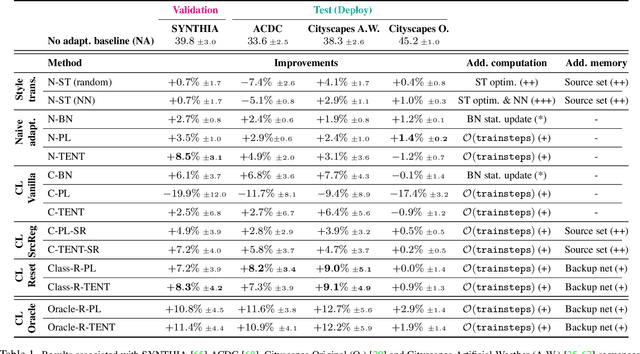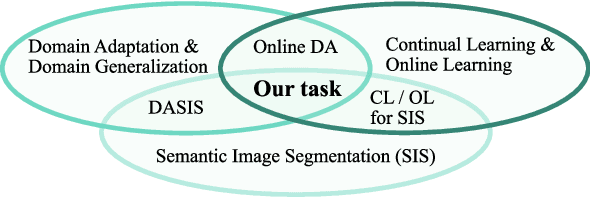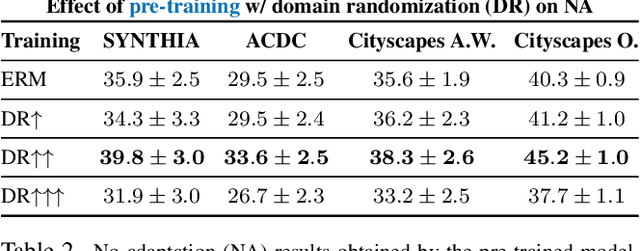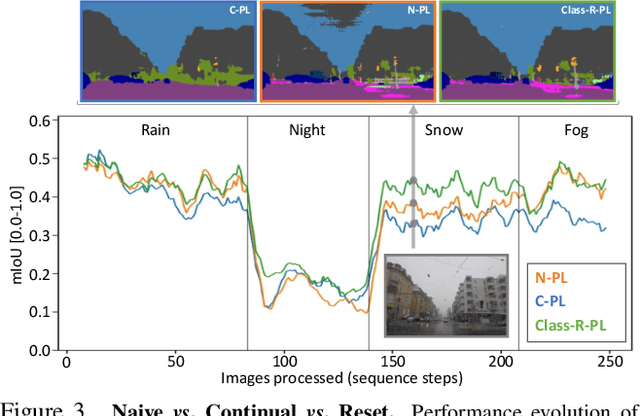On the Road to Online Adaptation for Semantic Image Segmentation
Paper and Code
Mar 30, 2022



We propose a new problem formulation and a corresponding evaluation framework to advance research on unsupervised domain adaptation for semantic image segmentation. The overall goal is fostering the development of adaptive learning systems that will continuously learn, without supervision, in ever-changing environments. Typical protocols that study adaptation algorithms for segmentation models are limited to few domains, adaptation happens offline, and human intervention is generally required, at least to annotate data for hyper-parameter tuning. We argue that such constraints are incompatible with algorithms that can continuously adapt to different real-world situations. To address this, we propose a protocol where models need to learn online, from sequences of temporally correlated images, requiring continuous, frame-by-frame adaptation. We accompany this new protocol with a variety of baselines to tackle the proposed formulation, as well as an extensive analysis of their behaviors, which can serve as a starting point for future research.
 Add to Chrome
Add to Chrome Add to Firefox
Add to Firefox Add to Edge
Add to Edge